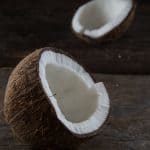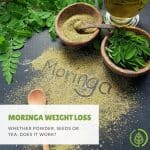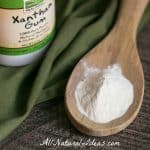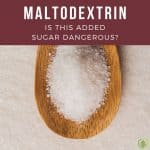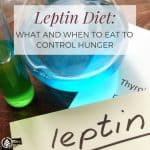Does taking a D-aspartic acid supplement really increase your testosterone? Testosterone boosters may help increase libido and muscle mass, regardless of your gender or activity level. And who doesn’t want that?
What do you think of when you hear “testosterone booster?”
You might picture an anabolic steroid-taking weightlifter with biceps the size of watermelons.
There’s certainly some segment of that population benefiting from testosterone boosters. But the truth is almost everybody can use a lift of libido and a little less belly flab.
That’s why a supplement known as d-aspiritic acid (DAA) is becoming more popular. So if you take DAA, will it increase the amount of testosterone in your blood? And as a result, will you have the libido you had when you were a teenager? And will your bodyfat melt like butter into lean muscle tissue?
Does D-Aspiritic Acid Work?
Here’s the short version to the answer: probably not.
The reason why is research studies on DAA show mixed results. And the studies that do show promise are very small. Until there are larger studies showing it works, the evidence seems to be stacked against using DAA to boost testosterone.
Although, to be fair, there is decent proof it helps men with fertility. So, gentlemen, if you’re trying to make a baby with your partner, there’s probably no harm in taking it. At the very least, it might raise your sperm count.
And who knows? Maybe there’s at the very least a placebo effect that results in a higher libido.
d aspiritic acid testosterone
If you’re still interested in learning more about it–maybe you’ve read some d-aspiritic acid reviews that swear by it (see below)–here’s the 411 on this health supplement.
Remember, health supplements are not regulated by the Food And Drug Administration (FDA). Therefore, you should research what brands are reputable before making a purchase.
With that disclaimer out of the way, let’s learn the basics about DAA. And to get to know DAA, first, you need to know a little about testosterone.
Most people know that testosterone is the male sex hormone. It what makes men, well, men. It’s the reason why men can become aggressive, have bulging biceps, hair on their back, etc….
But some people don’t realize women also have (and need) testosterone. Women have less testosterone hormone than men. However, women need enough of it for healthy bone mass and to prevent thinning hair and excess weight gain.
Consider this depressing fact about the aging process: after age 30, levels of testosterone dip by about one percent per year. This is the reason why hormone replacement therapy is a mutli-billion dollar a year business. And this is also the reason why testosterone-boosting supplements like DAA are becoming more popular.
But is d-aspiritic acid really one of the best supplements for men over 40? And can DAA benefit women as well?
After all, low testosterone doesn’t just affect your sex life and waist line, it can also influence your mood. In fact, having low testosterone may put you at more risk for depression.
Can you see why having enough testosterone in your blood is so important?
What is d-aspartic acid?
Now that you know why people take DAA supplements, let’s learn more about what it is in the first place.
DAA acid is an amino acid. Amino acids are the building blocks of protein. There are essential and non-essential amino acids. Essential ones your body does not produce on its own. So you have to get them from food or supplements. Non-essential amino acids are made by your body; you don’t have to get them from food or supplements.
You can combine certain foods like beans and rice to get all your essential amino acids in one sitting. So can’t you just eat beans and rice everyday and not really need DAA?
Sure, and not only that, DAA is a non-essential amino acid. So technically, you don’t even need a DAA supplement because your body makes it on its own.
Why Do People Take D-Aspiritic Acid?
If DAA is a non-essential amino acid, then why take a supplement?
The reason why requires a little understanding of chemistry. Let’s try to keep this simple you don’t fall asleep….
DAA comes from the non-essential amino acid, asparitic acid. (Sounds like asparagus, and yes, asparagus is high in asparitic acid.)
But D-aspartic acid isn’t a protein building block. Rather, its role is more in making and releasing hormones.
And considering how much testosterone we lose over the years, no wonder people are turning to DAA supplements.
Despite the mixed-bag conclusions on DAA’s testosterone-boosting abilities, there are there are other benefits to taking it.
D-Aspartic Acid Benefits
In fact, according to this study, the benefits include regulation of hormone synthesis and release (and not just testosterone).
In the brains of rats, DAA enhances the release of a hormone, GnRH. This hormone plays a key role in estrogen production and ovulation.
Also, DAA has been shown to release oxytocin. Oxytocin is a neurotransmitter. It regulates social interaction and sexual reproduction.
In addition, d-aspartic acid plays a role in the release of the hormone, vasopressin. Vasopressin helps the kidneys retain water and increase blood pressure when necessary.
DAA also plays a role in the secretion of the following three hormones: prolactin, luteinizing hormone, and growth hormone.
Again, hormones regulate several of your body’s functions. This includes sleep, blood pressure and heart rate and energy, among several others.
Perhaps a d-aspartic supplement may help facilitate some of these important functions.
D-Aspartic Acid: is there proof it works?
There doesn’t seem to be enough research to support taking d-aspartic acid for testosterone.
According to HealthyButSmart.com d-aspiritic acid did significantly raise testosterone in one study. However, the study is very small. It consists of only 23 men. And these men are sedentary with already below average testosterone levels.
Moreover, other studies show that d-aspartic acid does not significantly raise testosterone. And another study says it may actually lower testosterone levels.
How to use d-aspartic acid
But if you want to give DAA a try, here’s how to use it.
According to this study, you need to take 1 μmol/g per day to get maximum aspartic acid benefits. For this study, the greatest benefit was increasing luteinizing hormone, testosterone and progesterone.
D-aspartic supplement doses are generally three grams one or two times a day, according to HealthyButSmart.com. However, it’s not yet clear what dose is best to increase serum (blood) levels of testosterone.
Natural sources of d-aspartic acid
Considering the lack of evidence supporting the use of d-aspartic acid, perhaps it’s best just to get it from food?
Again, DAA is a non-essential amino acid. However, as mentioned above, maybe it’s a good idea to get more of it from food since testosterone levels plummet as you get older.
Chicken and red meat are good sources of aspartic acid. Beef contains almost 5 grams of it per serving. Most other meats contain at least 3 grams.
You can also get aspartic acid from eating eggs. Dairy also contains aspartic acid. However, dairy may promote inflammation.
Certain grains like rice have aspartic acid. But grains do not contain nearly as much aspartic acid as meat. However, if you eat healthy sources of meat and grains in moderation, you’re likely getting enough aspartic acid.
D-aspartic acid reviews
When it comes to deciding what supplements to take to boost testosterone, what better group to ask than bodybuilders. A forum on bodybuilding.com includes a scathing review of DAA:
“This stuff DOES NOT RAISE TESTOSTERONE. It’s a fraud. my testosterone levels were low 1 year ago 2 weeks after getting off this stuff, and they were even lower now 4 weeks on this stuff… they are now clinically low. This stuff is a fraud, I have the blood work to prove it.”
The response to this review: “[Aspartic acid] was debunked as a Testosterone booster a while ago. You’re not telling this forum anything unknown.”
Here’s another highly-negative d-aspiritic acid supplement review:
“Towards the end of month 4 on D-aspartic acid, I found myself with symptoms of depression that were crippling. I missed work, had no motivation, stopped going to the gym and nearly ruined my relationship.”
And perhaps this review best sums up who this supplement will work for:
“If you have low luteinizing hormone and subsequently low testosterone counts, [DAA] may help get your numbers up into the healthy range!”
The reviewer also explains:
“If your testosterone count is low but your luteinizing hormone [LH] count is high (classic hypogondism), this will do nothing for you. In addition, if your testosterone and LH counts are healthy, this product will either do nothing OR trigger a test conversion to estrogen, causing side effects like [male breast enlargement] and others.”
In other words, if you’re suffering from low sex drive and energy, go get a blood test from your doctor or functional medicine doctor. Ask your doctor whether a d-aspiritic acid supplement would help correct your hormonal imbalances.



